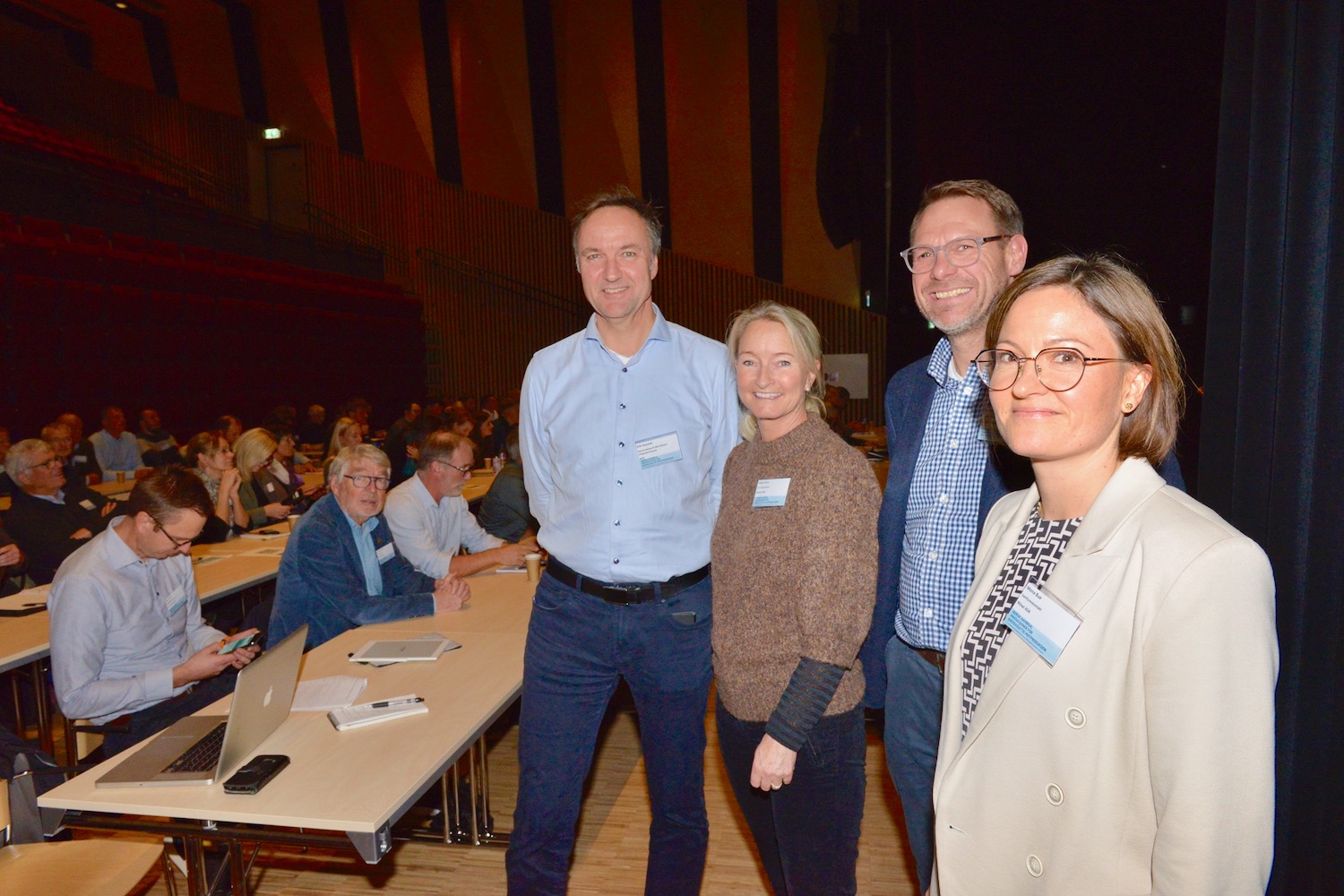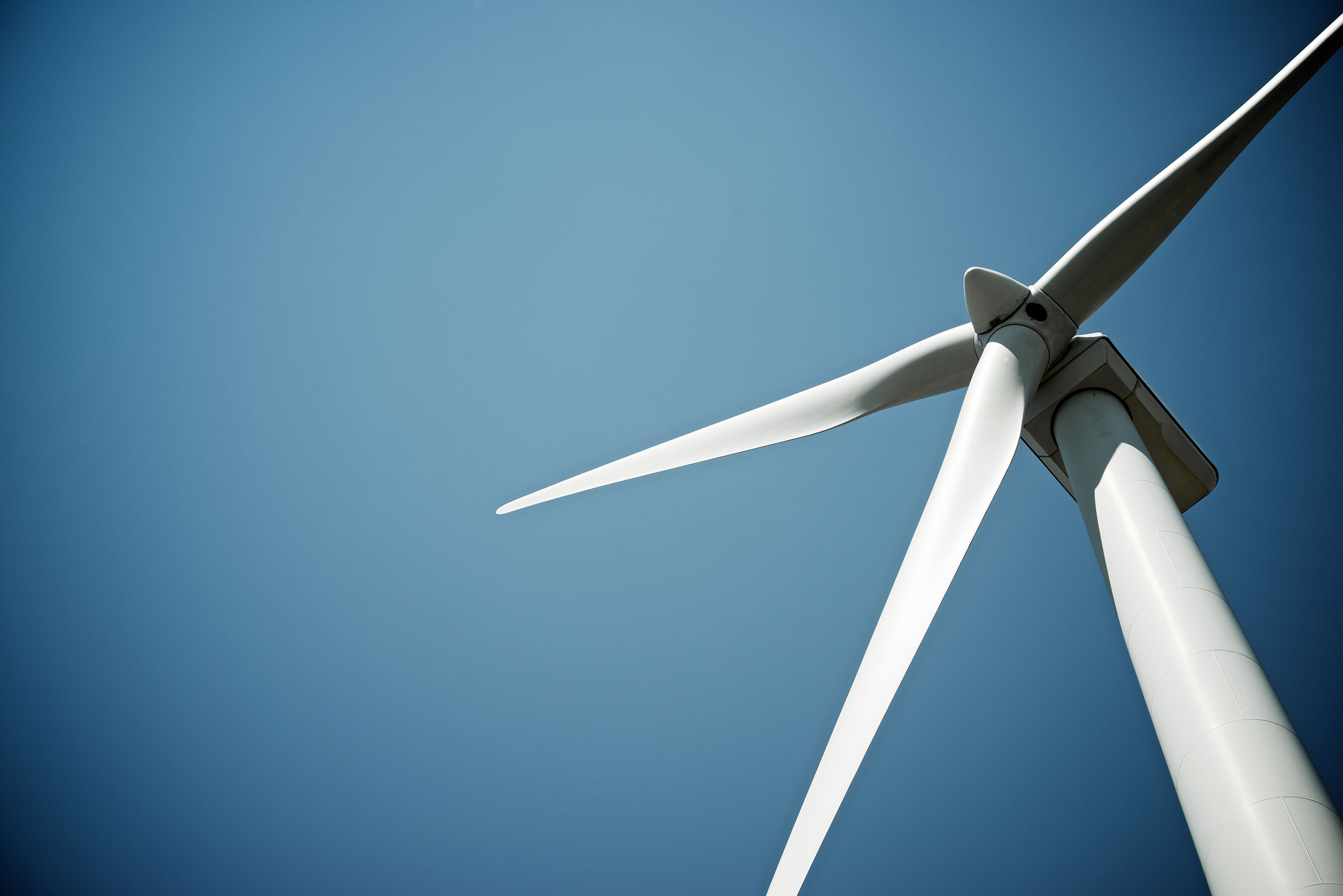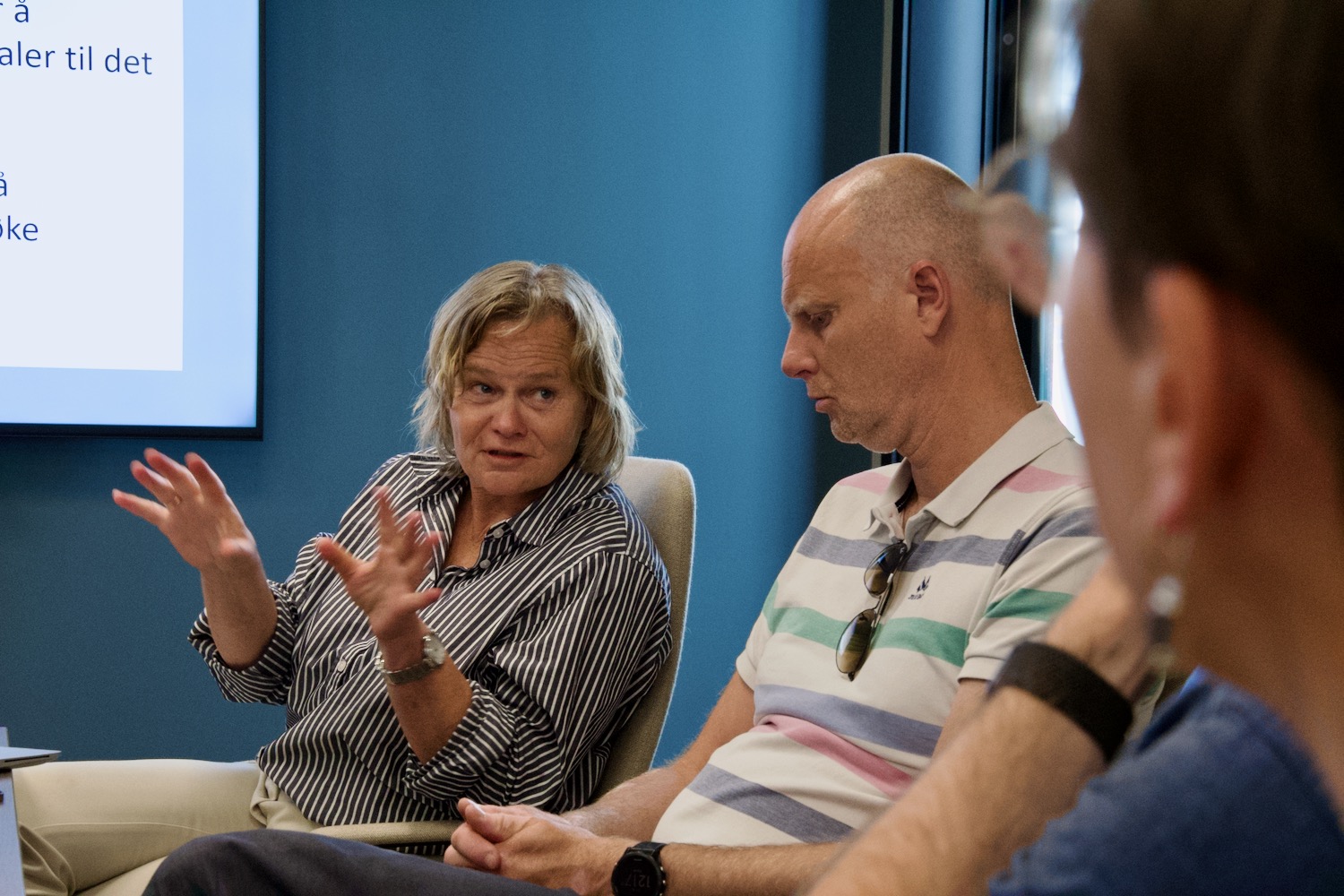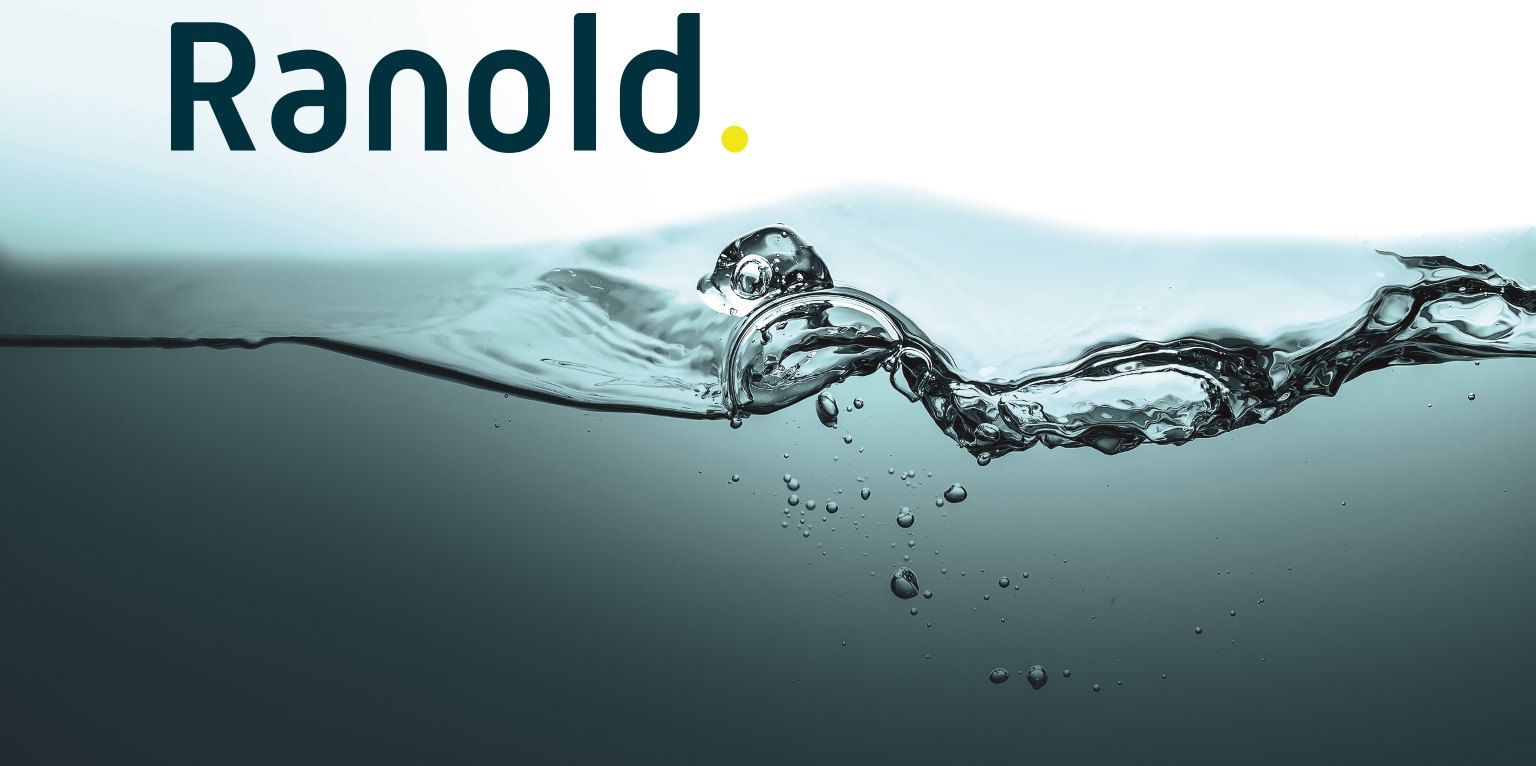Last week, a delegation from both National Oilwell Varco and Nekkar were among the near 100 participants at an aquaculture conference in Flekkefjord.
“We have a close collaboration with a major offshore company that wants to transition into land-based fish farming. As an established supplier to the oil and gas industry, we see opportunities to develop products for the aquaculture industry. It would make us an addition to the oil and gas market,” says Haavind.
Nekkar is already established as a producer of closed fish cages.
“We are a technology company that delivers solutions to the offshore sector. We believe The Starfish closed cage technology will become an important niche for us. Attending this conference enable us to meet other industry players and professionals, and to gain further insight into this sector,” says Mette Harv, Executive Vice President Aquaculture and Renewables at Nekkar.

NEW TECHNOLOGY FOR FISH WELFARE
Innovative solutions that improve fish welfare, make operations more efficient, and reduce environmental impact, is what the aquaculture industry needs, according to Director General Yngve Torgersen at the Department of Aquaculture of the Norwegian Ministry of Trade, Industry and Fisheries.
As the opening speaker at conference in Flekkefjord, hosted by GCE NODE and industry cluster Innakva, Torgersen stressed the need for technological innovations to improve health welfare for farmed fish.
“The industry will have to develop methods that ensure better fish welfare. Today, 50 million salmon die annually in Norwegian facilities. This cannot continue. Mortality rates must be reduced to better the industry’s reputation and to meet consumers’ demands,” said Torgersen.
He believes in continued growth for the Norwegian aquaculture industry, which is a NOK 100 billion market.
“However, the cost level in Norway will remain a challenge. It will require innovative solutions and automation of production processes for the aquaculture industry to provide increased value creation in the next 10 years,” said Torgersen.

MORE RESEARCH
Bente Torstensen, Division Director at Nofima, Norway’s leading food research institute, stressed the need for more research into methods for measuring fish welfare.
“By improving fish health, survival rates and profitability will increase and lead the way to a more sustainable industry”, said Torstensen.

LAND-BASED IN KVINESDAL
In Kvinesdal, Stolt Seafarm uses heated process water from the Eramet plant to cultivate high quantities of quality turbot.
“Land-based facilities for aquaculture, such as ours, are expensive to operate and requires production of a high value product. The industry must find new ways to reduce costs, it could be using solar or wind power for cheaper energy. Commercial utilization of waste should also be explored”, said Robin Neil Scotland, Norway Country Manager at Stolt Seafarm.
Mowi, one of the world’s largest fish-farming companies, has five facilities in the Agder region.
“We are planning for continued growth, and in coming years it will be important for us to ensure enough competence and manpower,” says Mona Bue, Community Liaison at Mowi.
PROMOTING INNOVATION
Christian von der Ohe, RD&I Manager at GCE NODE was pleased with the turnout for the Flekkefjord conference.
“Our goal was to bring industry players together to promote innovation and identify technology transfer potentials, as well as spreading research-based knowledge. The Agder supplier industry to oil and gas has a lot to offer the aquaculture sector. Technology and solutions can be adapted, and knowledge can be transferred. We see great commercial opportunities for GCE NODE companies in aquaculture, especially when it comes to automatization and digitalization” says von der Ohe.




